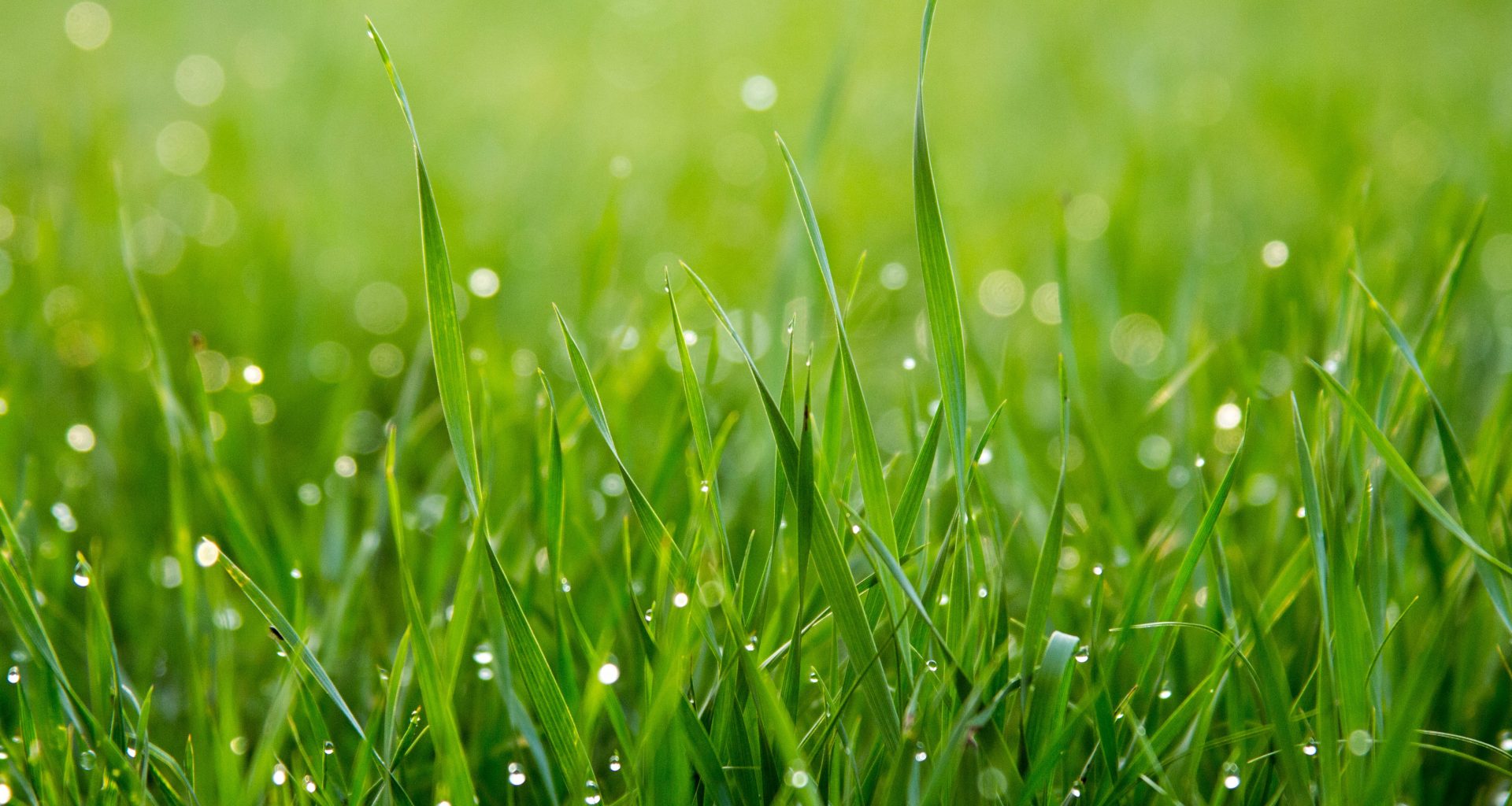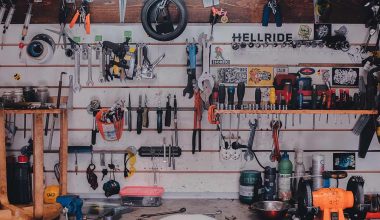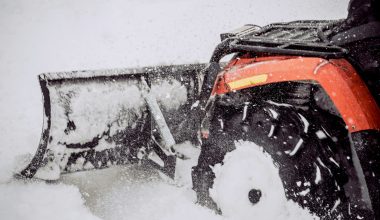As it’s coming into the Fall and Winter months, it can be tempting to mow a wet lawn after rainfall or storms. There are two sides to the wet lawn debate. Some people think it’s fine to mow grass when wet, others are very against it.
Whatever lawn mower you have, we don’t usually recommend mowing when the grass is wet. In this article, I’ll explain to you exactly why that is. For advice on how to mow your lawn, or what mower to use, we’ve got some other great articles on these topics. For now, read on to find out more about mowing wet lawns!
Mowing A Wet Lawn Is Difficult
First, mowing when it’s been raining is notoriously difficult. Not only is it bad for the environment, but mowing can also be a horrible chore for many. Why make it any harder for yourself? Wet grass is sticky and it is a struggle for lawn mower blades to slice through it. Wet cutting can cause a messy finish which takes ages to achieve.
Moreover, grass that has been cut whilst wet creates a lot of maintenance issues. Cleanup is more difficult because grass cuttings are sticky when wet. Mold can grow on your lawn mower if it isn’t dried properly. Grass stains also happen on clothes and other surfaces way easier from wet grass cuttings.
Safety Of Mowing A Wet Lawn
Not only is it inconvenient, but mowing a wet lawn can be very dangerous. There are a few reasons why.
Electrical And Personal Safety
Electricity and water do not go well together. It only takes a bit of basic common sense to realize that if you have an electric mower, cutting wet grass causes an electrocution hazard. Avoid this by only mowing when the grass is completely dry.
Additionally, wet grass is slippery. If it’s tired are not grippy enough, the mower could slip. You might also slip if your shoes are not sturdy enough. You might hurt yourself badly if you fall. Also, this could cause a horrible accident involving mower blades. Just don’t do it!
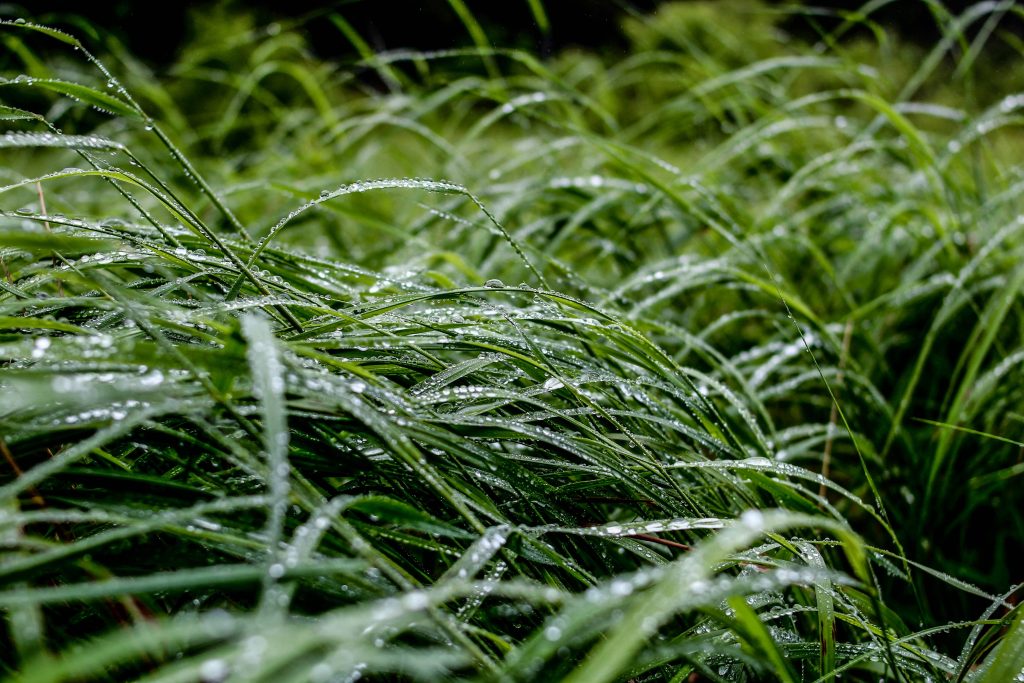
Mowing A Wet Lawn Can Break Your Mower
On top of electrical and personal safety hazards, mowing a wet lawn can damage your lawn mower. Many people take pride in their lawns and mowing equipment, sometimes spending a lot of money on it. Wet mowing can damage this often expensive equipment.
Gas mower tanks can be damaged through contamination from excessive moisture. As we’ve mentioned already, electric mowers can have their circuits damaged. Water can also corrode the machinery. Also, clumps of wet grass can block the blades or vacuum leading into the storage bag. It’s not worth breaking your mower over some wet grass!
Damage Your Grass With Wet Mowing
Next, mowing wet grass can be detrimental to the grass itself.
Disease Spreading
Fungus and mold need water to thrive and spread. Some conditions develop in wet grass. If you mow the grass whilst wet, any developing conditions can be spread around. Things like brown patch disease can kill off a lot of your lawn if spread in this way.
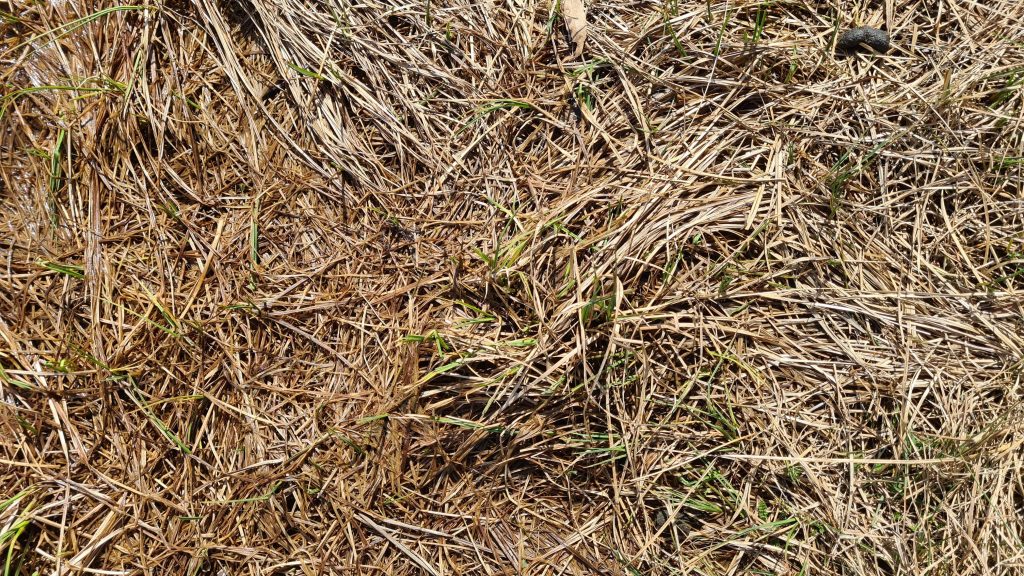
Root And Soil Problems
Wet mowing can also damage the roots of your grass blades and the soil they grow in. Because lawn mowers are heavy, they are designed for dry, hard ground. They can sink into, compact, and cut up wet ground. Your shoes can also contribute to this whilst you walk behind the mower. This can stop your grass from getting enough oxygen in the compacted soil. It can also cause diseases when your grass doesn’t have good airflow.
What To Do When Its Been Raining
So, it’s pretty obvious you shouldn’t be mowing a wet lawn. It damages the grass, is dangerous to you, damages equipment, and is difficult. What do you do when your grass needs cutting and it has been raining, then?
How Long Should I Wait To Cut Grass After Rain?
If you’ve had a heavy downpour of rain or a storm, the grass and ground will be very saturated. Wait one day–or possibly two–to mow. You need to make sure the grass is totally dry to touch before you begin.
For lighter showers, wait around 3 to 5 hours. The same goes for when there is morning dew. You really don’t want to be mowing wet lawns.
What If I Can’t Wait?
Under most circumstances, grass cutting is not urgent enough to mean you can’t wait for the lawn to dry before mowing. However, if you really have to get it done, you can minimize the risks. Sharpen your blades so they have more cutting power. Raise your mower deck so clippings are less likely to get stuck. Avoid bits of ground that feel too squishy or water-logged. The best advice though is to simply avoid mowing wet lawns!
